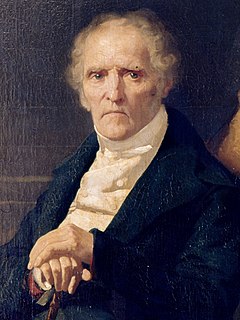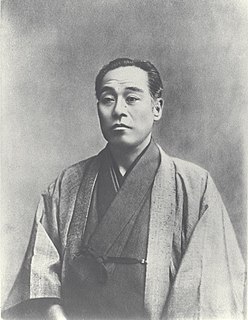A Quote by Charles Fourier
The Civilized… murder their children by producing too many of them without being able to provide for their well-being. Morality or theories of false virtue stimulate them to manufacture cannon fodder, anthills of conscripts who are forced to sell themselves out of poverty. This improvident paternity is a false virtue, the selfishness of pleasure.
Related Quotes
Spirituality is not a question of morality, it is a question of vision. Spirituality is not the practising of virtues - because if you practise a virtue it is no longer a virtue. A practised virtue is a dead thing, a dead weight. Virtue is virtue only when it is spontaneous; virtue is virtue only when it is natural, unpractised - when it comes out of your vision, out of your awareness, out of your understanding.
For fantasy is true, of course. It isn't factual, but it is true. Children know that. Adults know it too, and that is precisely why many of them are afraid of fantasy. They know that its truth challenges, even threatens, all that is false, all that is phony, unnecessary, and trivial in the life they have let themselves be forced into living. They are afraid of dragons, because they are afraid of freedom.
In his address of 19 September 1796, given as he prepared to leave office, President George Washington spoke about the importance of morality to the country's well-being: Of all the dispositions and habits which lead to political prosperity, Religion and Morality are indispensable supports. . . . And let us with caution indulge the supposition that morality can be maintained without religion. . . . Can it be that Providence has not connected the permanent felicity of a Nation with its virtue?
But perhaps that's why we take snaps...to provide false evidence to underpin the false claim that we were happy. Because the thought that we weren't happy at least for some time during our lives is unbearable. Adults order children to smile in the photos, involve them in the lie, so we smile, we feign happiness.
The thing is too that when you sell people a false reality and they take that to be the norm, when that false reality is light-years from what’s really happening, that in itself is a tremendous defense mechanism because when you start talking about what is actually happening, it is so different from what people perceive to be happening. They just can’t make that jump; it’s too insane for them.
Souls that have lived in virtue are in general happy, and when separated from the irrational part of their nature, and made clean from all matter, have communion with the gods and join them in the governing of the whole world. Yet even if none of this happiness fell to their lot, virtue itself, and the joy and glory of virtue, and the life that is subject to no grief and no master are enough to make happy those who have set themselves to live according to virtue and have achieved it.
In its broad sense, civilization means not only comfort in daily necessities but also the refining of knowledge and the cultivation of virtue so as to elevate human life to a higher plane... It refers to the attainment of both material well-being and the elevation of the human spirit, [but] since what produces man's well-being and refinement is knowledge and virtue, civilization ultimately means the progress of man's knowledge and virtue.
Through inculcating the notion that sacrifice is a virtue, Christianity has succeeded in convincing many people that misery incurred through sacrifice is a mark of virtue. Pain becomes the inignia of morality - and conversely, pleasure becomes the insignia of immorality. Christianity, therefore, does not say, "Go forth and be miserable." Rather, it says, "Go forth and practice the virtue of self-sacrifice." In practical terms, these commands are identical.








































